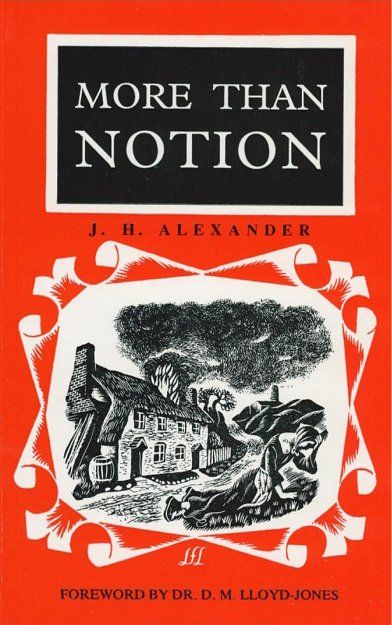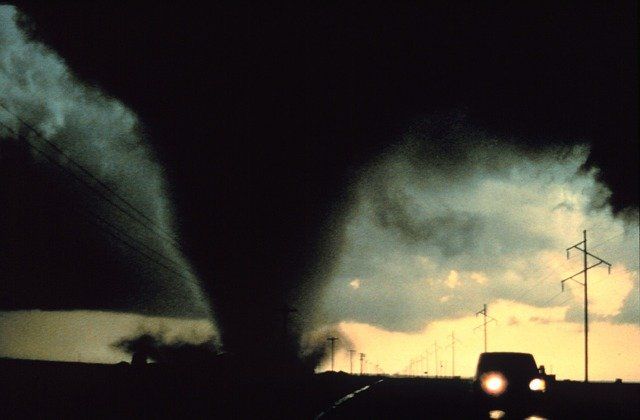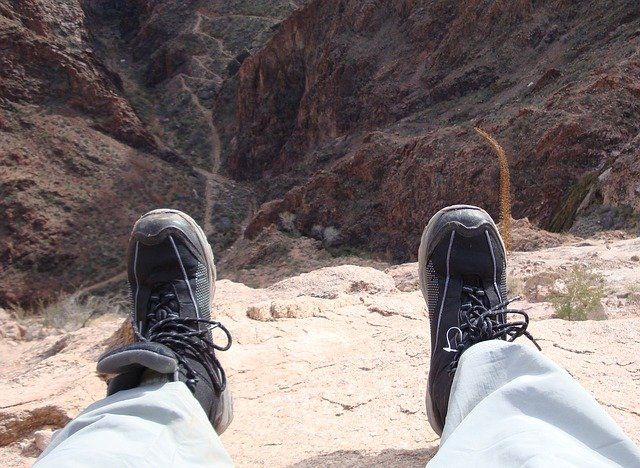
In the early years of my ministry in Cardiff I read a book which had been recommended to me, and in my opinion it would leave a lasting impression on anyone who read it. It is the sort of book that, as you lay it aside, causes you to become very thoughtful, because you are left with the conviction that you have not even started on the spiritual life, or at least you still have a long way to go.
More than a notion
The book is an account by J. H. Alexander of the spiritual awakenings in the villages around Pulverbatch in Shropshire, in the eighteenth century, and its title is More than Notion. The events described are fascinating and very moving in themselves, and I have always been taken up by the title, which comes from a couplet of a hymn written by Joseph Hart at that time,
‘True religion is more than notion,
Something must be known and felt.’

The first line delivers a well-aimed blow at the multitude of flashing thoughts and fanciful ideas that a person might have about God. This century in particular seems to have specialised in vague ideas about God, and the more extreme and ridiculous they are, the more ardent their followers become and the more fiercely they defend their position. Such ideas sweep across the land like tornadoes, carrying everything before them and certainly leaving devastation in their wake. Meanwhile the sad decline in the things of God continues. But true religion has to be more than some notion, some passing idea, if my immortal soul is to be comforted and given an assurance that my eternal destiny is secure.
Essential information
Something must be known. There are so many religions, major and minor in size and influence. What is so special about the Christian faith? Our Lord Jesus Christ made a great statement when answering Thomas, one of the disciples who was puzzled about the whole concept of heaven and the way the Lord referred to it. What an unforgettable reply Jesus gave when he said, ‘I am the way, the truth, and the life: no man comes to the Father, but by me’ (John 14:6). This puts the Christian faith in a unique position. It is revealed by God and brings an authority unknown to any of men’s ideas about the Creator and an after-life. God himself has intervened.

The essential information we need to have is about God, about the way to him, and about how we may enjoy fellowship with him eternally. This great divine Being is perfect in all his vast attributes and qualities. However, his holiness, his righteousness, his purity set him far apart from sinful mankind.
A great chasm
Some time ago I had the opportunity of seeing the Grand Canyon in the United States of America. No words can describe its vastness, its beauty and its fearful depths. It is about three hundred miles long and a mile deep, and there below, in its inky depths, the ferocious Colorado River makes its way. Suppose that the finest long jumper the country had ever produced wanted to make his name famous by leaping across the canyon … the mere thought is ludicrous! Yet men believe that somehow, by their own efforts, they can attain the perfection that God requires if we are to have fellowship with him. The gap between God’s holiness and man’s sin dwarfs the chasm of the Grand Canyon. A hymn by Thomas Binney expresses the extent of the gulf in the form of a question:
‘O how shall I, whose
native sphere
Is dark, whose mind is dim,
Before the ineffable appear,
And on my naked spirit bear
The uncreated beam?’
A way for man to rise
The Indians who lived around the Grand Canyon called it ‘a mountain upside down’. In a wonderful way, our Lord makes the hopeless chasm between God and man into a hill called Calvary, and in his grace and mercy he beckons the awakened soul to himself. In his active obedience, Jesus Christ has fulfilled God’s law in our place. In his passive obedience he has taken our penalty and paid it in full on the cross at Calvary. So, as Binney’s hymn concludes:
‘There is a way for man to rise
To that sublime abode:
An offering and a sacrifice,
A Holy Spirit’s energies,
An advocate with God.’
The awakened and enlightened soul sees there in the Son of God, the one who clears our debt, removes our unworthiness, and offers that life of Christ as a robe of purity and righteousness. It is the finished work of the Lord Jesus Christ that is the essential knowledge for our spiritual good. Something must be known.

A changed heart
But what is known must also be felt. How terrible to know these things and yet remain on the brink of that chasm looking down into eternal despair! Something must also be felt. There must also be a change of heart, which God alone can give as we hear the glorious words of the gospel of salvation. The soul wakes up to its fearful plight in the sight of a holy God.
By God’s grace that soul is now equipped to approach the Saviour, and finds that the chasm has become the hill on which he died. Drawn by God’s irresistible grace, we make our way to him. We are enabled to repent of our sin – our mind understanding, our desire eager, and our will ready to embrace the Lord with the gift of faith. ‘For by grace are ye saved through faith; and that not of yourselves; it is the gift of God’ (Ephesians 2:8).
Our whole being is involved in this wonderful discovery about God and ourselves. We know and believe that his Son is our Saviour, and we have peace with God. There is joy and relief over sins forgiven; assurance of an inheritance that awaits us; and the promise that we shall be with God for ever. Yes, something must be felt. There must be knowing and feeling. The intellectual and experimental are inseparable in true religion.














